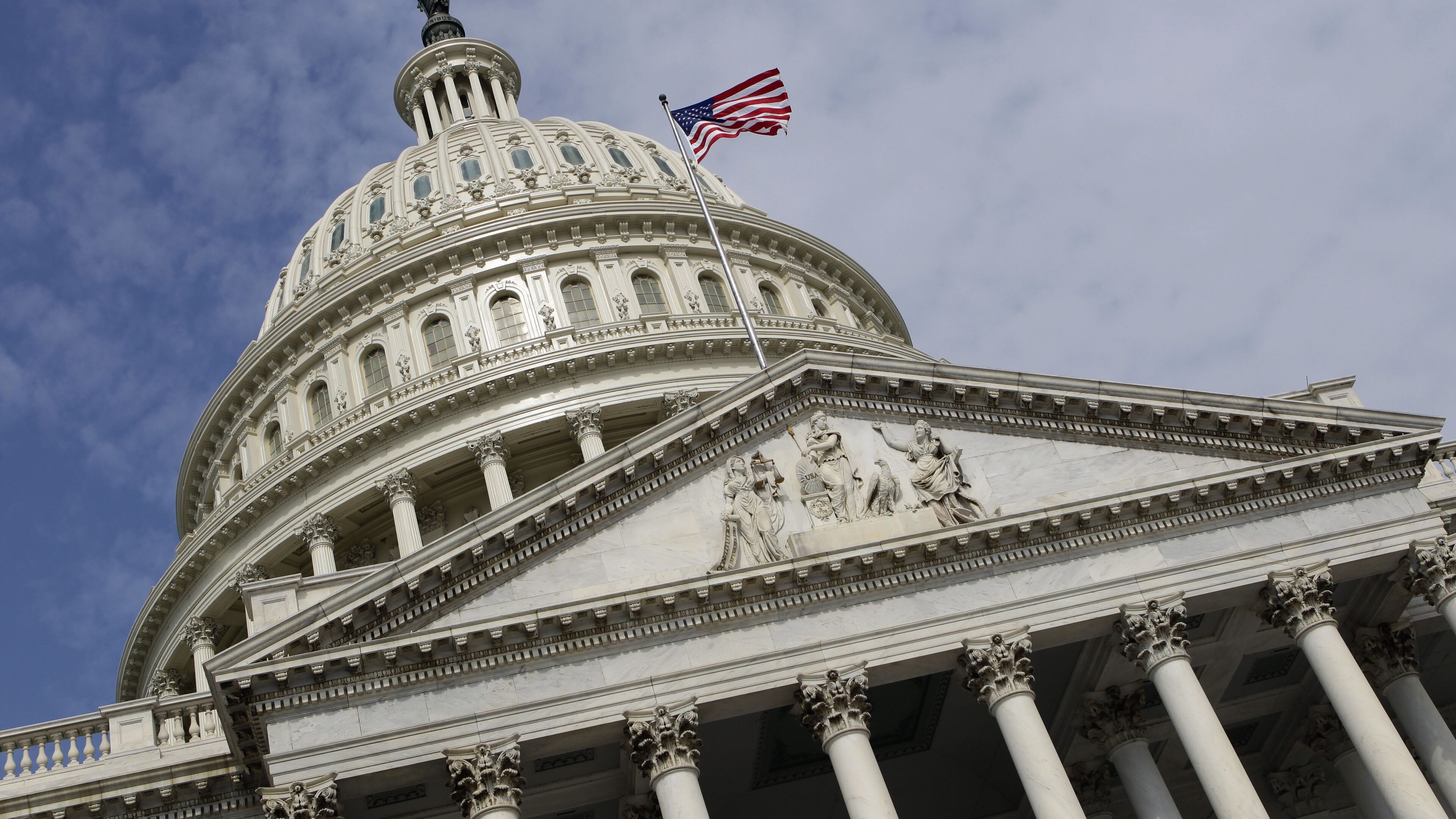What's Washington going to look like in January 2017?

By this point in the process, we're getting a clearer picture of how power will be distributed in Washington come January. The most likely outcome puts President Hillary Clinton in the White House, with Charles Schumer of New York in the role of Senate majority leader in the role once held by Harry Reid.
In the House, Paul Ryan and the Republicans are still likely to remain in control, but with a much smaller majority. That narrowed GOP House majority is also likely to be even more conservative, because the seats that they lose in November are likely to come in districts with more moderate voting histories. It's going to be very interesting to watch Ryan try to squeeze enough votes from his caucus to perform the absolute minimums of responsible governance, such as raising the debt ceiling, without causing so much anger within his caucus that he's unseated as speaker. I frankly don't know how he's going to do it.
On the Senate side, that Democratic majority may prove to be short-lived, because in 2018 the Democrats will have to defend 23 seats, plus the seats of two independents who vote with the Democratic caucus. Only eight GOP seats will be on the line. So liberal Supreme Court justices contemplating retirement would probably do so pretty quickly, to ensure a friendly Senate capable of confirming his or her replacement.
I would also expect Schumer and the Democrats to outlaw or severely restrict the filibuster as a means of preventing judicial nominations from coming to a vote. Republicans will howl about the break with Senate tradition, but it will be a hollow howl. Traditionally, the filibuster was allowed in such cases with the understanding that it would be used only in extraordinary occasions, not as a common practice. That understanding is no longer valid. The nomination of Merrick Garland seven months ago sits untouched by the Senate, and Sen. John McCain recently promised that Republicans would block every single Supreme Court nomination by Clinton, regardless of merit.
McCain later retracted that promise, but the message had been sent. It's also telling to see conservatives trying to create an intellectual rationale for refusing to fill additional vacancies, such as this piece by Michael Stokes Paulsen in National Review. Paulsen, a law professor active in the conservative Federalist Society, argues that Congress ought to shrink the size of the Supreme Court from nine members to six, which it can do through legislation, thus denying to our next president the right to nominate anyone to the court. If that legislation can't be enacted, Paulsen writes, Senate Republicans should simply refuse to consider or confirm any new justices until attrition leaves six justices.
And of course, he proposes that extraordinary breach of constitutional duty as a means of protecting the Constitution that he claims to hold so sacred.
As we attempt to peer into the future, the most important and intriguing question involves the future of the Republican Party, or whether it even has one. What you might call the "Paul Ryan Republicans," which includes the #NeverTrump contingent, are watching from the sidelines while Trump completes his march of madness, doing to his own Republican Party what General Sherman did to Georgia in his march to the sea. After the election, they hope to pick up the shattered pieces and put them back together in some fashion, intending to use Trump's fate as an object lesson to their fellow conservatives.
Trump supporters have a very different agenda. They have made it clear that they intend to turn the unabated anger and frustration of Trump voters at a new target after the election, arguing that the opposition of Ryan and the GOP establishment to Trump cost conservatives a glorious victory and installed the hated Clinton back in the White House.
Logic and rationality would argue that the two factions would find a way to heal that breach somehow, but that "somehow" is hard to conceive at the moment, even among -- or maybe especially among -- Republicans themselves. These are factions with very different, in basic ways contradictory concepts of what the Republican Party ought to be. And while you could argue that it has no electoral future as the party of Trump, a Bloomberg poll of likely Republican voters suggests that it has no present as the party of Ryan and his supporters.
